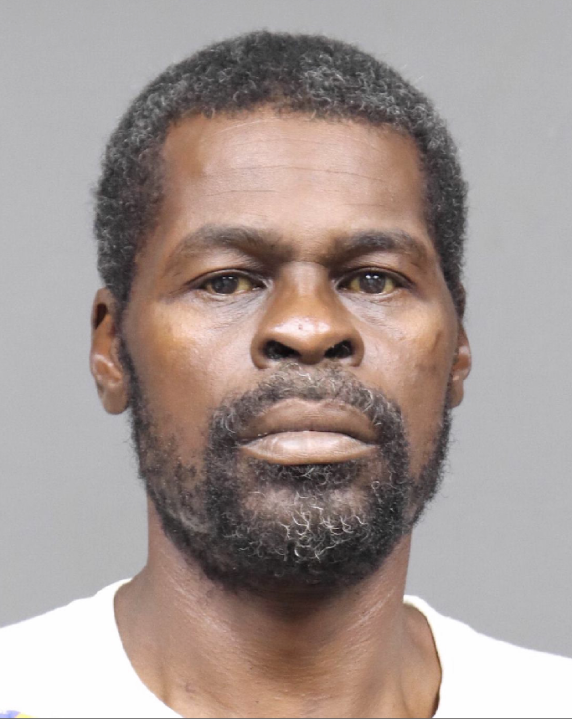Surveillance Footage and Parole Violations Spotlight Drug Enforcement Challenges in Utica
On July 1, 2025, an incident at the Utica Police Department’s booking area set off a chain of events that would soon put 49-year-old Steven Brown in the center of a serious legal storm. Surveillance footage captured Brown, already under parole supervision, removing plastic bags from his mouth and attempting to dispose of them discreetly. This dramatic act led to charges including tampering with physical evidence—a Class E felony—and third-degree criminal possession of a controlled substance, a Class B felony. With local law enforcement intensifying its efforts against drug-related crimes, this case symbolizes the ongoing community struggle to balance enforcement with rehabilitation.
Overview of the Incident
The Booking Area Breakdown
On a seemingly routine Tuesday morning, Utica Police Department investigators noticed an unusual detail in the booking area—a corner-knotted plastic bag lying on the floor. Upon further inspection, 19 similar plastic bags were discovered in a nearby waste can. These bags, upon closer forensic analysis, revealed evidence of a controlled substance. Surveillance cameras in the area provided a clear recording: Steven Brown was seen discreetly removing the plastic bags from his mouth as he waited to be processed. Later, when an officer was momentarily occupied elsewhere, Brown hastily attempted to discard the stolen items.
A police spokesperson remarked, “Our officers’ vigilance and the strategic use of surveillance technology played a crucial role in piecing together this act of evidence tampering.” This immediate detection not only initiated a thorough investigation, but also underscored the risk-money and sometimes desperate measures employed by individuals entangled in drug-related offenses.
Arrest and Parole Supervision Implications
Brown’s actions did not occur in isolation. At the time of the incident, he was under parole supervision—a status that leaves individuals vulnerable to any further violations of the law. On July 29, 2025, Brown reported to the Parole Department as required and was promptly taken into police custody. His arrest has since amplified discussions about the efficacy of parole supervision in mitigating recidivism and preventing drug-related crimes.
Detailed Analysis of Charges
Evidence Tampering: A Serious Offense
Under New York State law, tampering with physical evidence is classified as a Class E felony. This charge is designed to penalize anyone who knowingly alters, conceals, or destroys evidence with the intent to impair its use in a legal proceeding. In Brown’s case, his deliberate actions—removing the plastic bags from his mouth and quickly trying to dispose of them—fit the criteria of an intentional attempt to compromise the integrity of the investigation.
For those unfamiliar with the specifics of New York statutes, tampering with evidence not only disrupts the investigative process but also undermines public trust in the legal system. Law enforcement agencies rely heavily on the timely and accurate collection of evidence to build cases and ensure justice. When an individual such as Brown attempts to interfere with that process, it escalates the severity of the charges and, potentially, the sentence if convicted.
Criminal Possession of a Controlled Substance
The second charge against Brown is third-degree criminal possession of a controlled substance, recognized as a Class B felony. This charge typically arises when the amount of the narcotic, or the circumstances of its possession, suggest an intent to distribute or a clear violation of state regulations. Given the number of plastic bags and the manner in which the evidence was being hidden, prosecutors have determined that the charge fits the parameters of a serious offense.
Members of the community and legal experts alike point to such charges as a stark reminder of the ongoing opioid crisis and the heightened risks associated with drug-related offenses. On one hand, these laws serve as deterrents; on the other, they highlight the systemic challenges faced by individuals caught in the spiral of addiction and criminality.
The Role and Challenges of Parole Supervision
Understanding Parole in New York
Parole supervision is a critical component of the criminal justice system intended to reintegrate formerly incarcerated individuals into society while ensuring compliance with specific behavioral standards. Under parole, individuals are expected to avoid criminal activities and adhere to conditions set by the Parole Board. For Brown, being under parole supervision meant his actions at the booking area not only resulted in additional criminal charges but also put him at risk of losing his freedom altogether if his supervision is revoked.
Consequences and Broader Implications
The violation of parole conditions by engaging in criminal behavior, such as drug possession and evidence tampering, can lead to severe legal consequences. These may include revocation of parole and a return to incarceration. In communities like Utica, where drug-related crimes are a pressing concern, such instances prompt calls for stricter monitoring and more effective rehabilitation programs.
Many community leaders argue that while enforcement is essential, there must also be robust support systems to help parolees overcome the challenges that lead to recidivism. This dual approach—combining accountability with rehabilitation assistance—ensures a more balanced and sustainable strategy for public safety.
Law Enforcement Trends and Community Impact in Utica
Proactive Measures and Local Enforcement
In recent years, the Utica Police Department has ramped up efforts to address the surge in drug-related crimes. Operations targeting narcotics distribution and associated offenses have led to numerous arrests, reflecting a broader commitment to curbing illegal drug activity in the region. The case of Steven Brown is one among several that illustrate the department’s proactive stance in utilizing technology, community tips, and coordinated operations to dismantle drug networks.
Statistically, similar operations have resulted in a measurable decrease in drug activity in specific neighborhoods, although challenges remain. The ongoing debate centers on whether the strict enforcement actions are sufficient or if they inadvertently contribute to a cycle of recidivism by neglecting the underlying social and economic issues that foster drug abuse.
The Human Factor: Public and Community Reactions
Drug-related arrests are not just statistics; they represent human stories and community dynamics. While the details of Brown’s case have yet to elicit extensive public commentary, similar cases have spurred local debates about the need for comprehensive solutions to drug abuse. Community leaders and concerned citizens regularly advocate for increased investment in addiction treatment programs, mental health services, and community outreach initiatives.
A community organizer in Utica was quoted recently, saying, “Policing is necessary, but we must also address the root causes that push individuals towards drug abuse. Only then can we create safer neighborhoods.” Such perspectives underline the complexity of balancing public safety with rehabilitation efforts and community support.
Balancing Enforcement with Rehabilitation
The Challenges of Addressing Drug Crime
Recent trends indicate a rise in drug-related crimes in Utica, which has led to a dual strategy focused on both stern law enforcement and rehabilitative measures. The case of Steven Brown exemplifies the challenges faced when a parolee, who is already under supervision, attempts to engage in behavior that undermines both his freedom and the integrity of the legal process. The resulting charges not only add to the strain on the judicial system but also serve as a cautionary tale about the perils of neglecting rehabilitative support.
Moving Forward: Community-Based Solutions
A sustainable resolution to drug-related issues in Utica and similar urban centers lies in a multifaceted approach. Experts maintain that community-based solutions, which include robust addiction treatment programs and reintegration services, are essential complements to strict law enforcement. By allocating resources to both preventive and punitive measures, communities can work towards reducing recidivism and improving overall public health.
Some proposed strategies include specialized intervention programs for parolees, targeted outreach for high-risk individuals, and increased funding for mental health services. These initiatives aim to provide a bridge between incarceration and successful reintegration, ultimately reducing the likelihood of future offenses.
A Call to Action for a Safer Utica
The arrest of Steven Brown serves as a poignant reminder of the complex interplay between drug enforcement, evidence tampering, and the challenges inherent in parole supervision. With the Utica Police Department unwavering in its commitment to fighting drug-related crime, local communities are simultaneously urged to support initiatives that address the underlying social issues driving these offenses. As this case unfolds, it becomes increasingly clear that the path to a safer community is built on both accountability and compassionate rehabilitation.
Readers are invited to share their thoughts on this ongoing issue and to engage with local initiatives aimed at improving drug prevention and parole supervision practices. Your awareness and participation are vital as Utica continues its journey toward a balanced and effective criminal justice system.




